Tales from the Invincibles
JENS LEHMANN
WE CATCH UP WITH THE MEMBERS OF THE 2003/04 INVINCIBLE TITLE- WINNING SQUAD, TO ASK THEM ABOUT THEIR MEMORIES AND HIGHLIGHTS OF A CAMPAIGN LIKE NO OTHER.
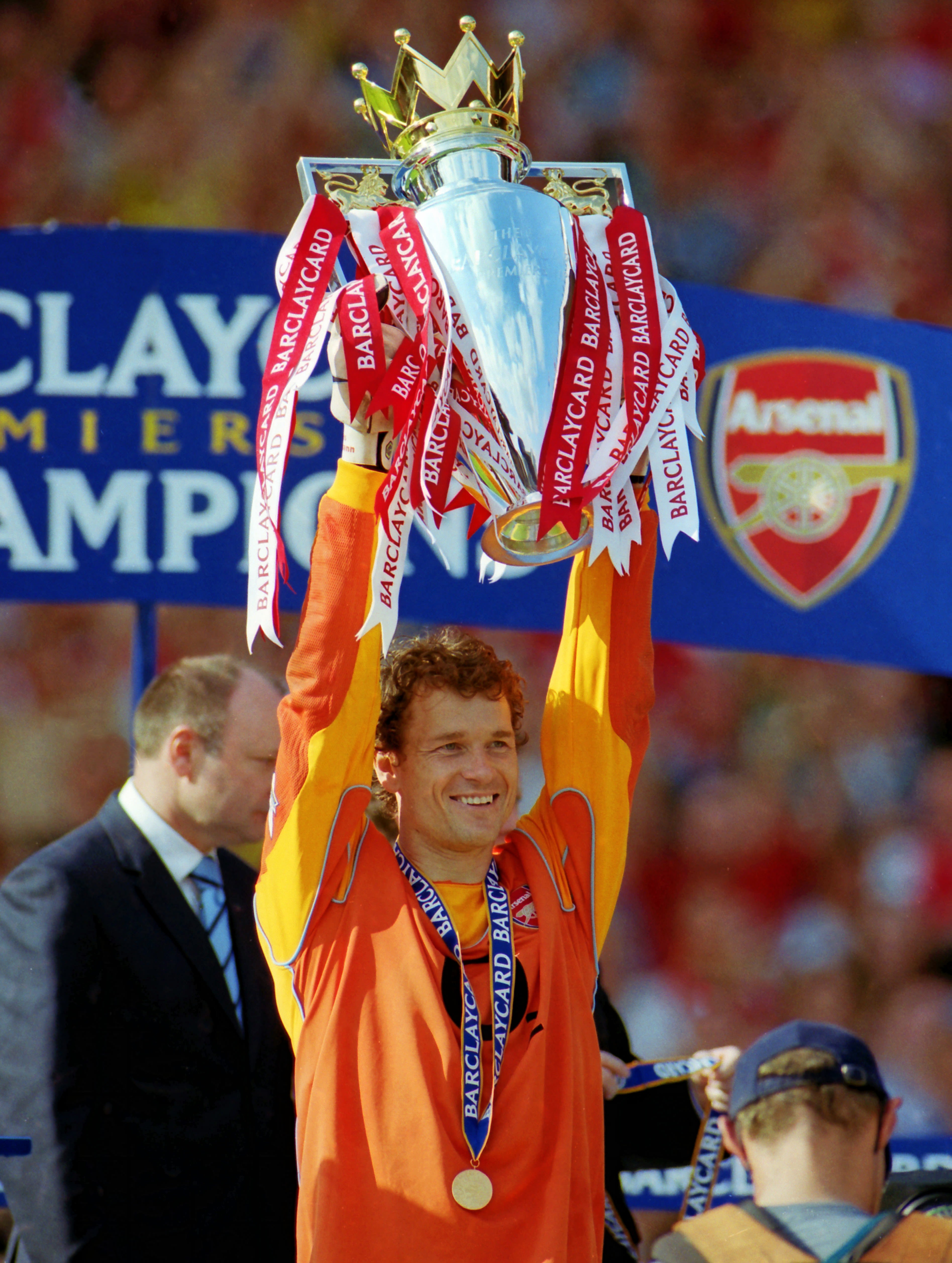
Only one player was on the pitch for all 38 games of our unbeaten Premiership season – goalkeeper Jens Lehmann. What was even more remarkable was that this was the German stopper’s debut season in English football, having joined from Borussia Dortmund to replace the departing David Seaman in the summer of 2003.
In fact, Jens didn’t miss a minute of action in the league, FA Cup or Champions League that term, playing 54 games in all competitions, and won the Golden Glove award for most Premiership clean sheets (15).
Aged 33 when he arrived, he went on to make exactly 200 appearances for us – the last of which was during his second spell with us in 2011, making him our oldest-ever Premier League player at the age of 41.
As well as the league title in 2004, he was instrumental in our FA Cup success of 2005, and the following year he set a new Champions League record for most consecutive minutes without conceding (763). He would later extend that record to 853 minutes.
After leaving the club in 2008, he played for Stuttgart and ended his career with 61 caps for his country, his international career peaked at the 2006 World Cup when he helped the hosts reach the semi-finals with some penalty shootout heroics in the quarter-final.
We caught up with Jens recently to turn back to clock 20 years...
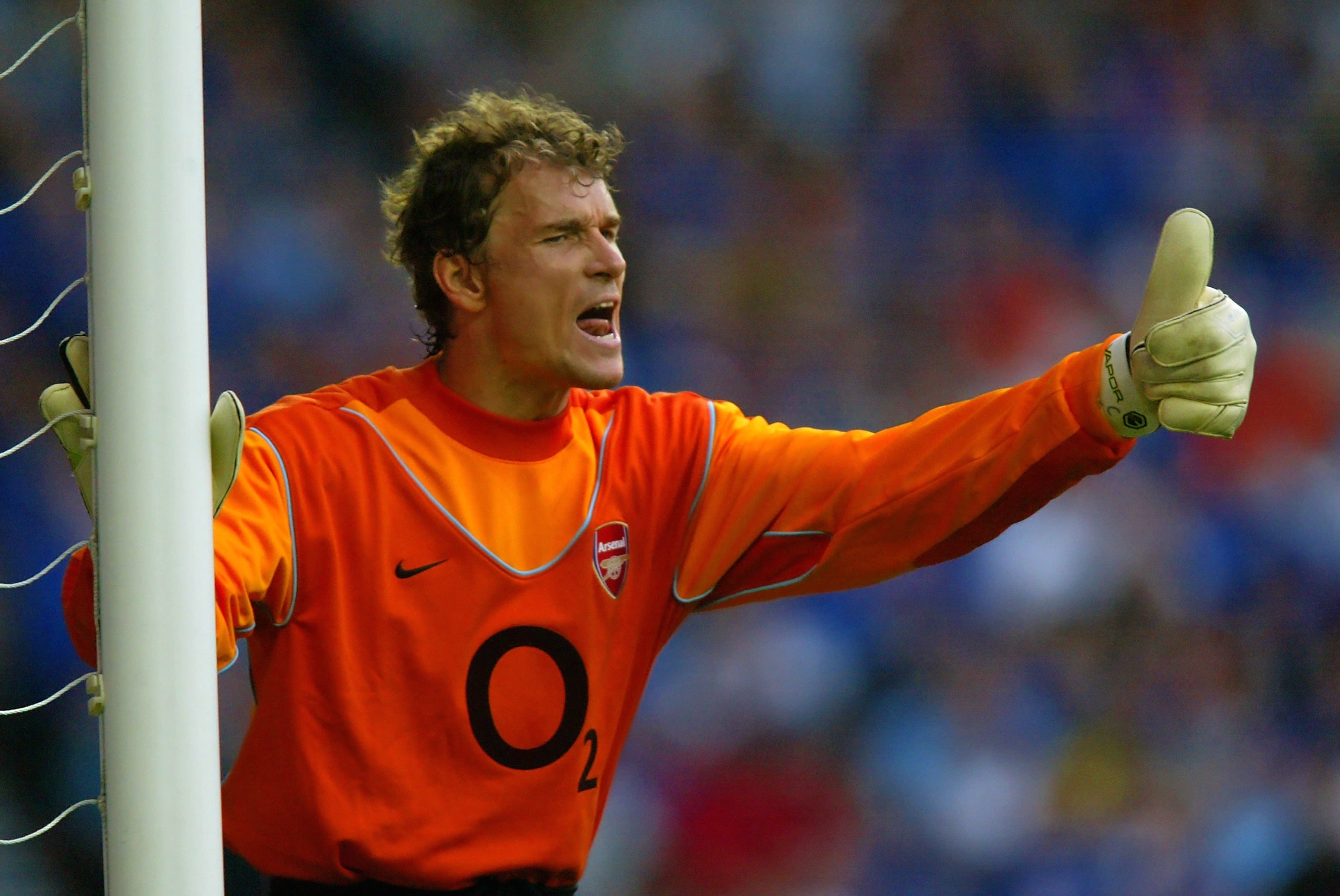
What were your first impressions of the club when you arrived?
When I joined the club, it was during the pre-season training camp in Austria. In the first session I saw the difference in quality immediately. I was used to good quality at Borussia Dortmund, but the individual quality and the combination play at Arsenal was just outstanding. The technicality, the accuracy of passing, was just incredible.
The funny thing was, after the second session, I went into the spa, and being German I went in naked. I remember Martin Keown and Ray Parlour were laughing, asking why I was naked. And I said: ‘that’s how you go into the sauna.’ They said ‘are you mad!?’ and I realised it was different in England!
You replaced the legendary David Seaman, Did Arsène Wenger warn you that it might be difficult to win over the supporters early on?
No, nothing. I think he was hoping for a good impression early on as well because he was replacing his goalkeeper after so long. He realised quite quickly that I had a completely different style of goalkeeping, so he was watching me carefully, but he didn’t say a lot.
It’s not as if he would say: ‘listen, we had a legend here before you, so it’s going to be very difficult for you to fill his boots.’ Psychologically that would not have been an intelligent thing to do. I knew I could not replace him as a legend, I only knew I could bring something different to the group.
You seemed to have a strong relationship with your defence from the first day...
No, it took a while to be honest. I learned from them, how to play with a back four, because in Germany teams didn’t really play with four at the back. I learnt that from Martin, Sol, Lauren and Ashley.
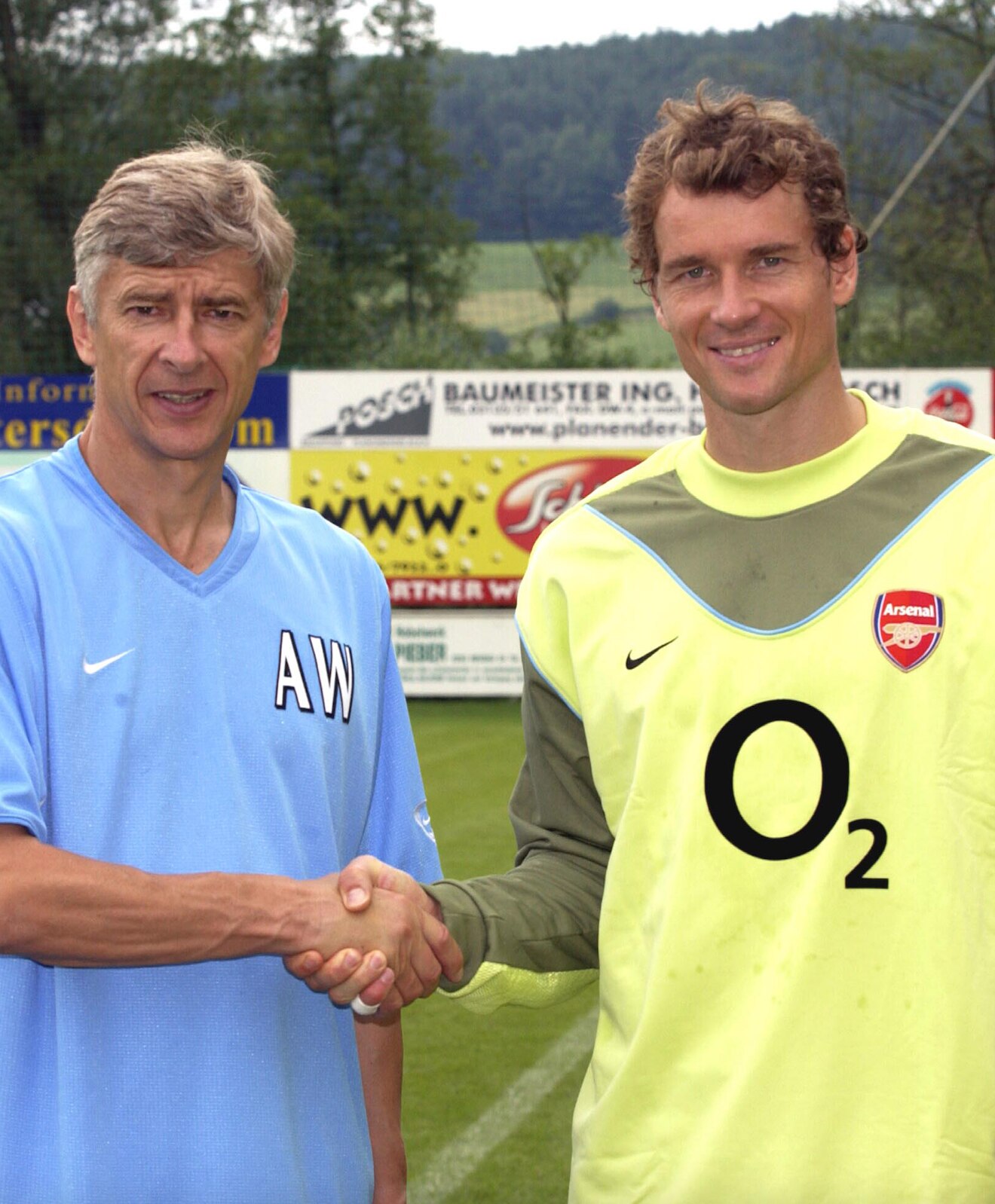
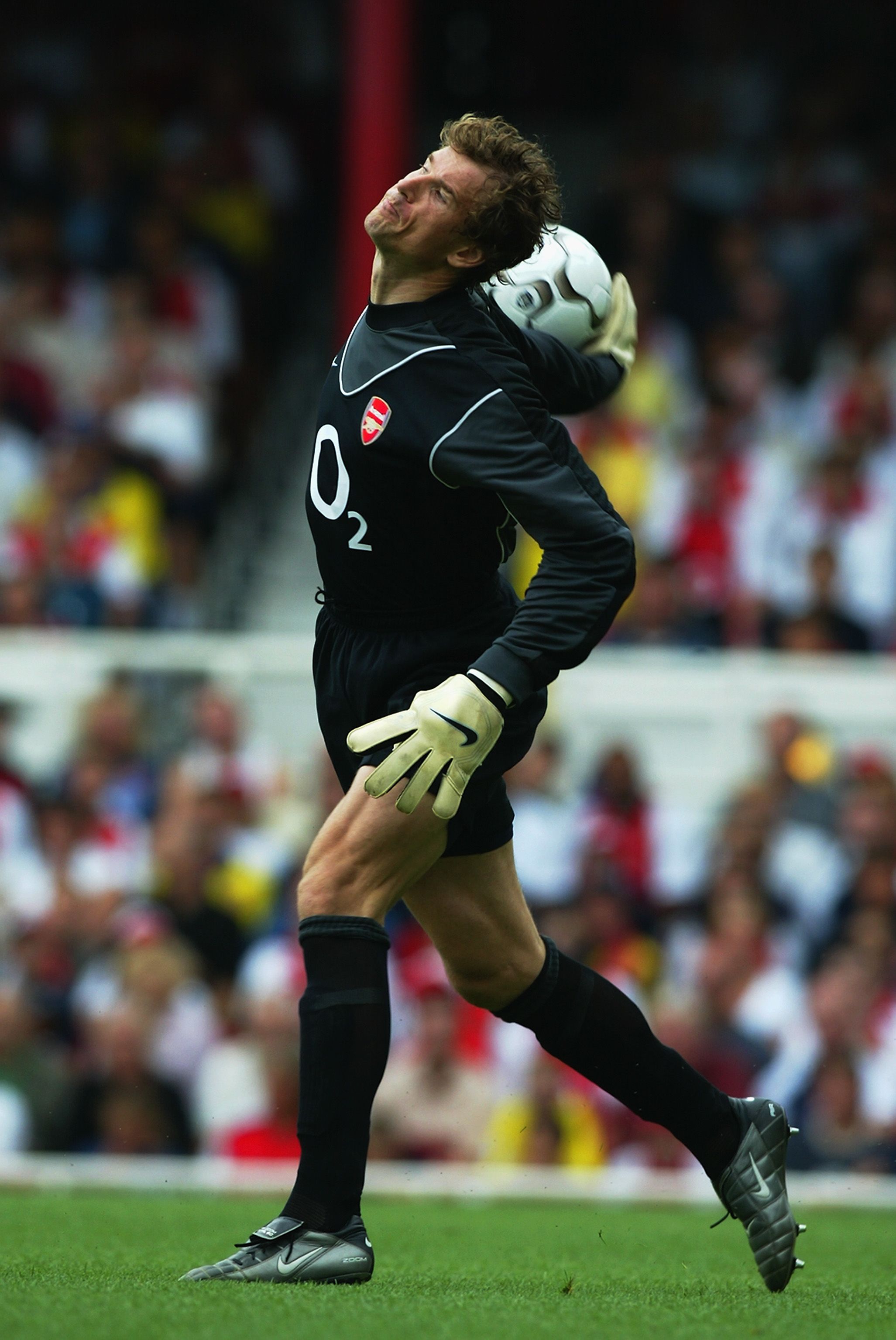
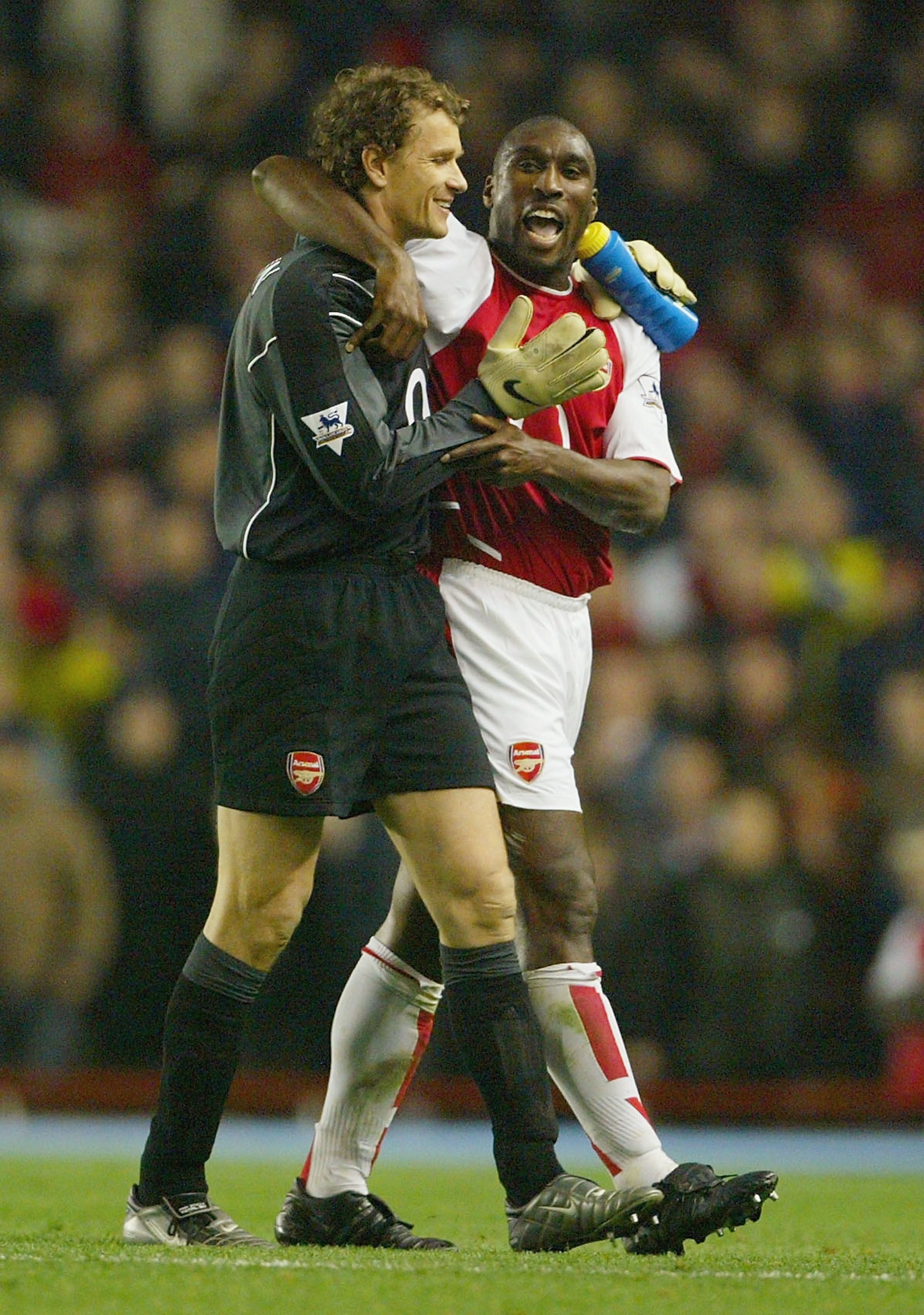
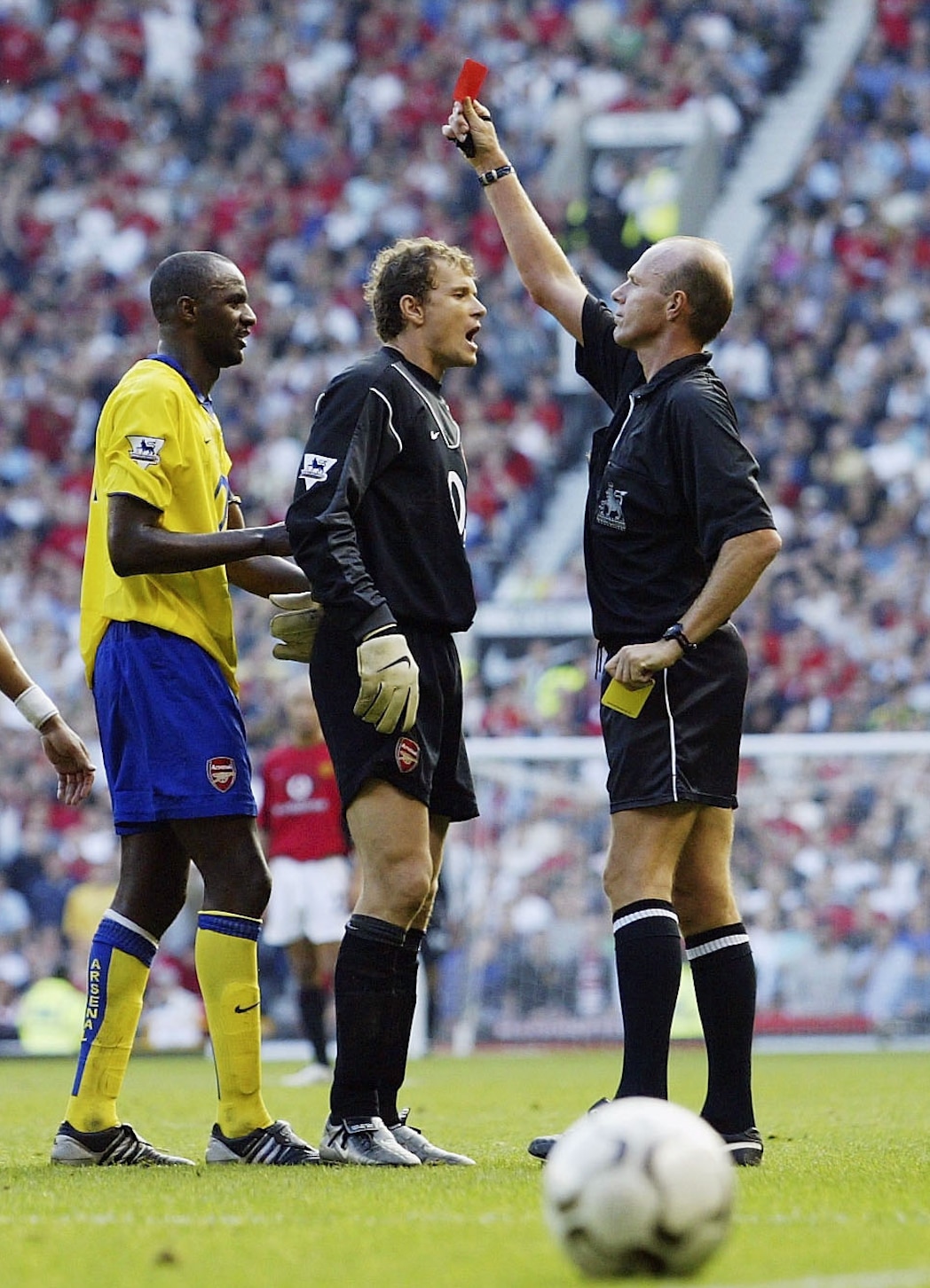
What are your main memories of your early days at the club?
I remember being late for the meeting before the first game, because I was not used to the London traffic. I was used to playing in Germany, and if you were ever late for a meeting, you were in big trouble, especially on the day of the game. SoI was in my car panicking, and rang Johnno – who was our team travel manager. He told me to relax, the meeting was 11am for 11.15, and if I couldn’t make it by 11.15, then no problem, I would go to the team hotel by car instead.
I think I made it just before 11.15, and I realised it was much more relaxed and better than in Germany, because in Germany if you were late for something, and then the team lost, you would be the one who was blamed.
Very early in your Arsenal career, you were involved in a game that’s still talked about, the goalless draw with Manchester United. What are your memories of that game?
It was a very intense game. It was my first time playing at Old Trafford so I was looking at the dressing room, the stadium, the tunnel and everything. It has a different smell. When you come to play football in a different country, it smells different. It’s difficult to explain, but it smells different.
The chanting is different too. I wasn’t used to it the first time. Fifteen minutes before the game, there was nobody in the stadium, so I thought: “oh the fans here are not that great." Then when I came out for the kick-off, it was full. That’s different to Germany, the fans are there more than an hour beforehand. So it was a lot different.
Then what happened at the end. They missed the penalty, there were big clashes on the pitch, and nobody was booked, not even for shouting at the referee, punching each other and so on. It was surprising, I thought afterwards there must have been bookings. There weren’t. Then a few days later players were fined and banned.
What did you make of our rivalry with Manchester United?
I knew that Manchester United had just taken the title off Arsenal and the year before that, Arsenal had won the title at Old Trafford. I was aware that Arsène Wenger and Alex Ferguson were not the best of friends, that they didn’t like this newcomer from France, because he caused a threat to them. So I knew the rivalry was big, and that day I found out about it.
I was the last one into the tunnel after the final whistle, and I found an Arsenal group and a Manchester United group confronting each other. The managers were face-to-face and I had never seen anything like that in a tunnel before in my life. It was something new for me, and described perfectly the rivalry between these two big clubs.
"When you come to play football in a different country, it smells different. It’s difficult to explain"
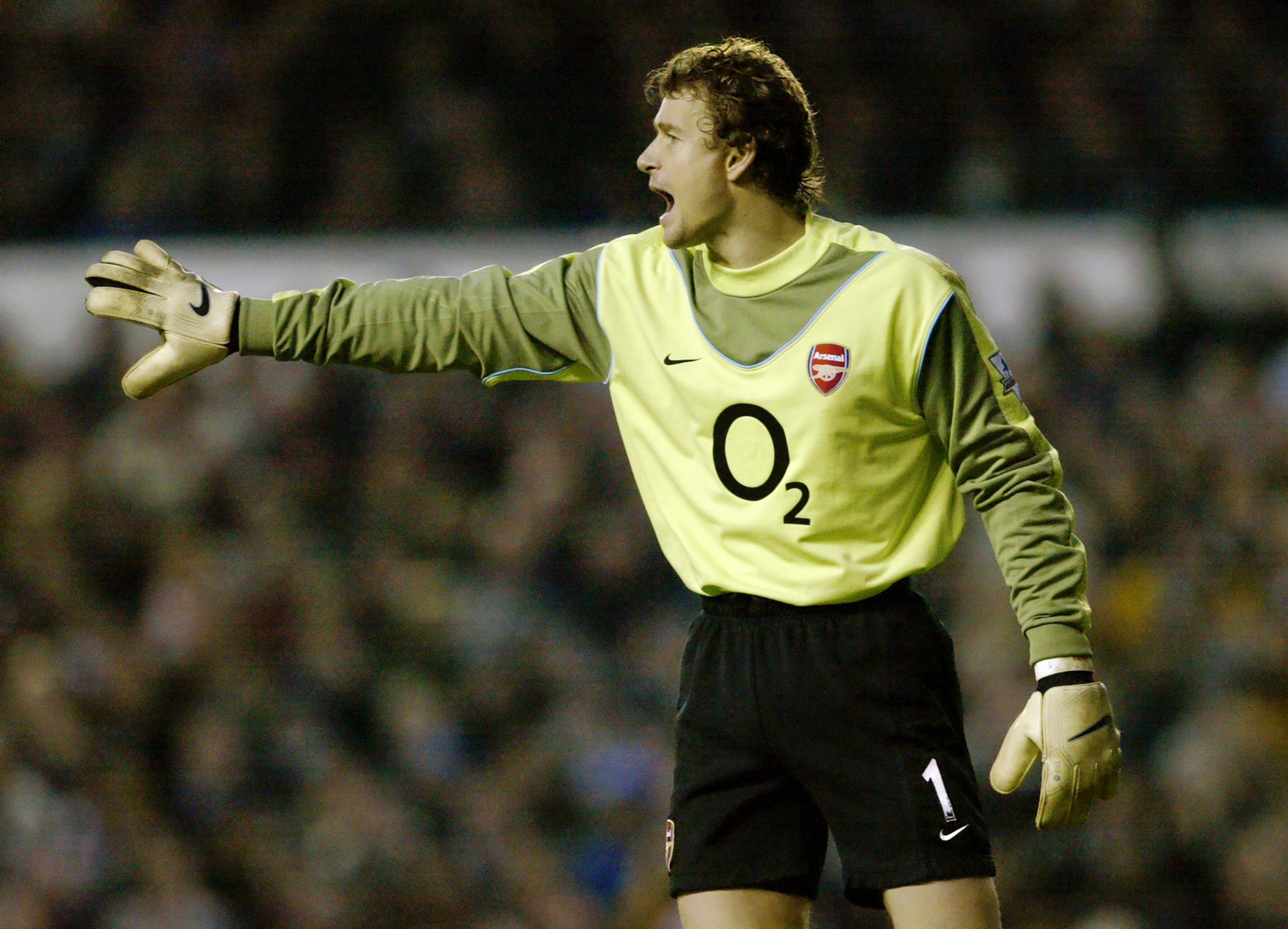
Did you fall in love with English football quickly after that?
Yes I liked it, and the fans seemed to like me, because sometimes when I came out for crosses I would knock down one or two of their players in the box. I still got the ball though, and I think that’s what they liked about my game. They were very respectful.
For me what I loved was the game was so fast. We played one or two touches, and it was so fast that it was difficult for the opponent to cope with. And for a goalkeeper I liked it, because I only had to react, I did not have to act. So for goalkeepers it’s easier to adapt to the Premier League, rather than a striker for example who has to adapt to the intensity and pace. I enjoyed it a lot.
Your backup keeper in 03/04 was Graham Stack. Did you have a good connection with him?
I enjoyed working with him very much. He was a great guy and a good goalkeeper. Particularly good was his agility and he was a very good footballer. Stuart Taylor was there as well, and when I arrived I was told that Stuart could become England’s new number one, So I welcomed the challenges, but both were very young.
Stuart had a couple of unlucky injuries, so Stacky was always there. A funny guy too, Irish family, and I enjoyed working with him. I think he was probably relieved at the end of the season not to have had to play, when he realised we didn’t lose a game! It would have caused a lot of pressure for him, someone that young, if he had to come in for his debut when we were protecting the unbeaten run.
You played every single league, FA Cup and Champions League game that season, and Stacky was on the bench for nearly all of them. Did you ever come close to missing a match?
Well of course I had slight injuries - for example in the winter I thought I might have to have meniscus surgery, because I had a problem with my knee. I remember the little mark they saw on the scan, was actually a scar from a previous cruciate injury 10 years earlier. That was the closest I came to being rested for a couple of games. But I always had the feeling that if I did my gym work properly, I could strengthen my body and keep injuries away.
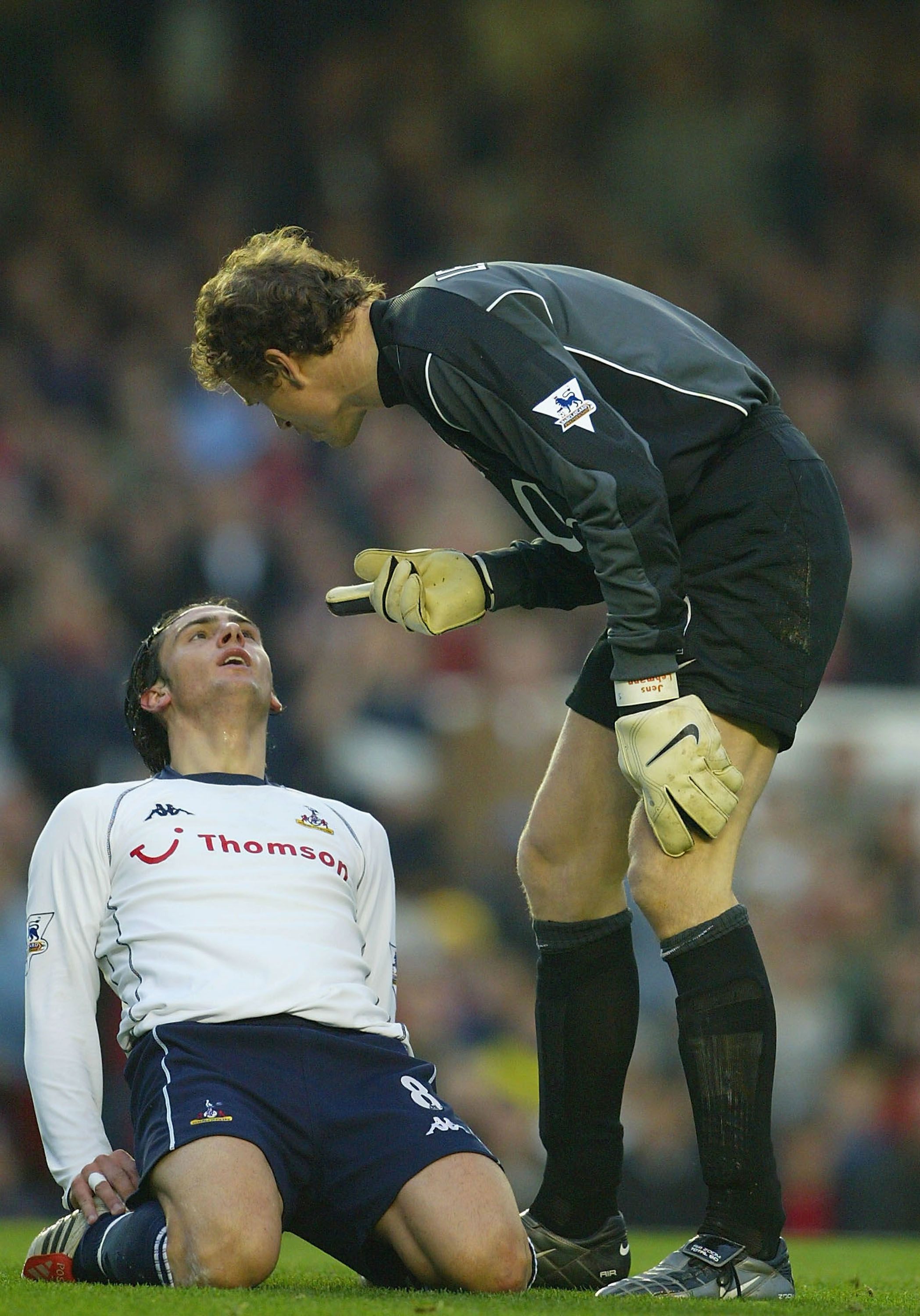
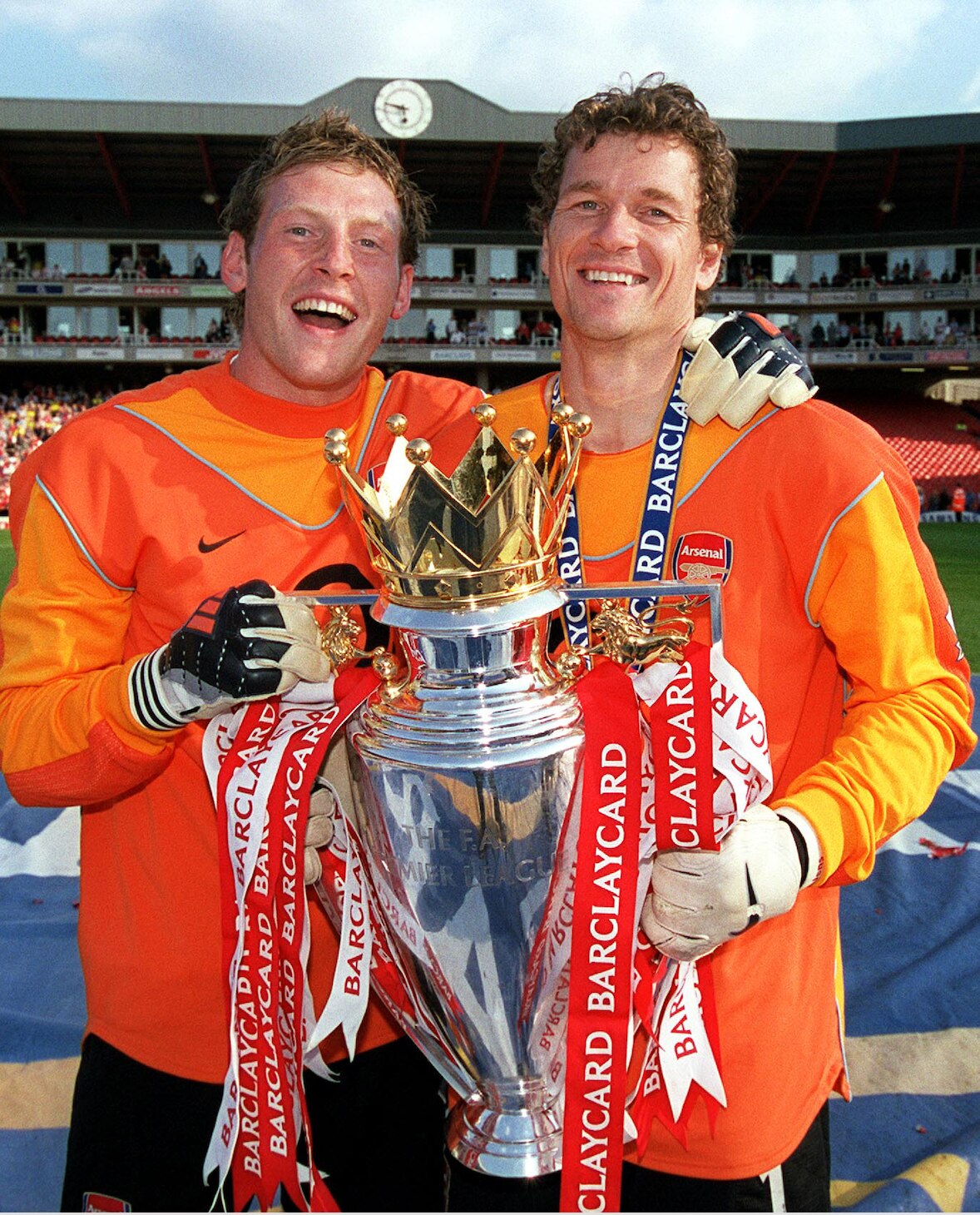
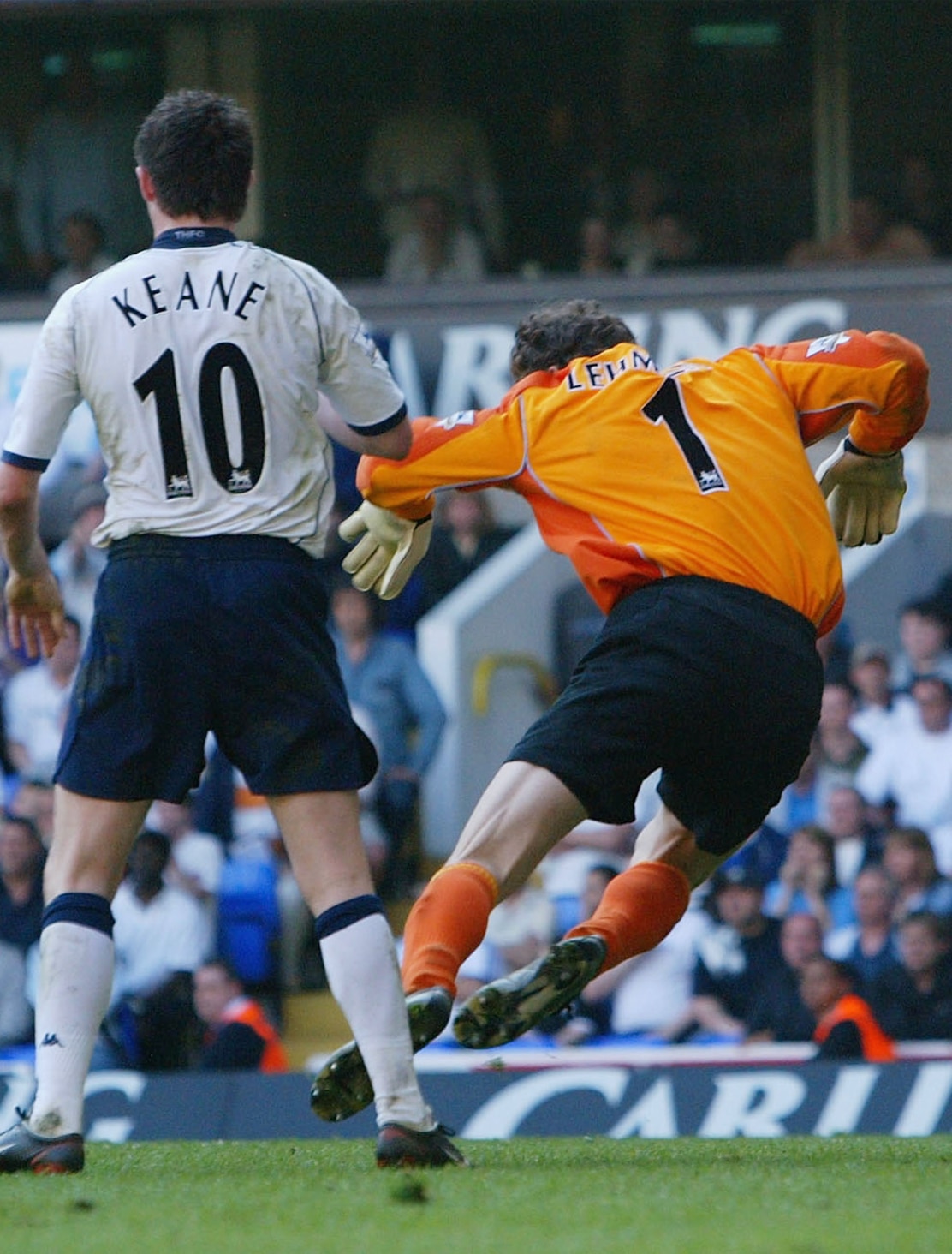
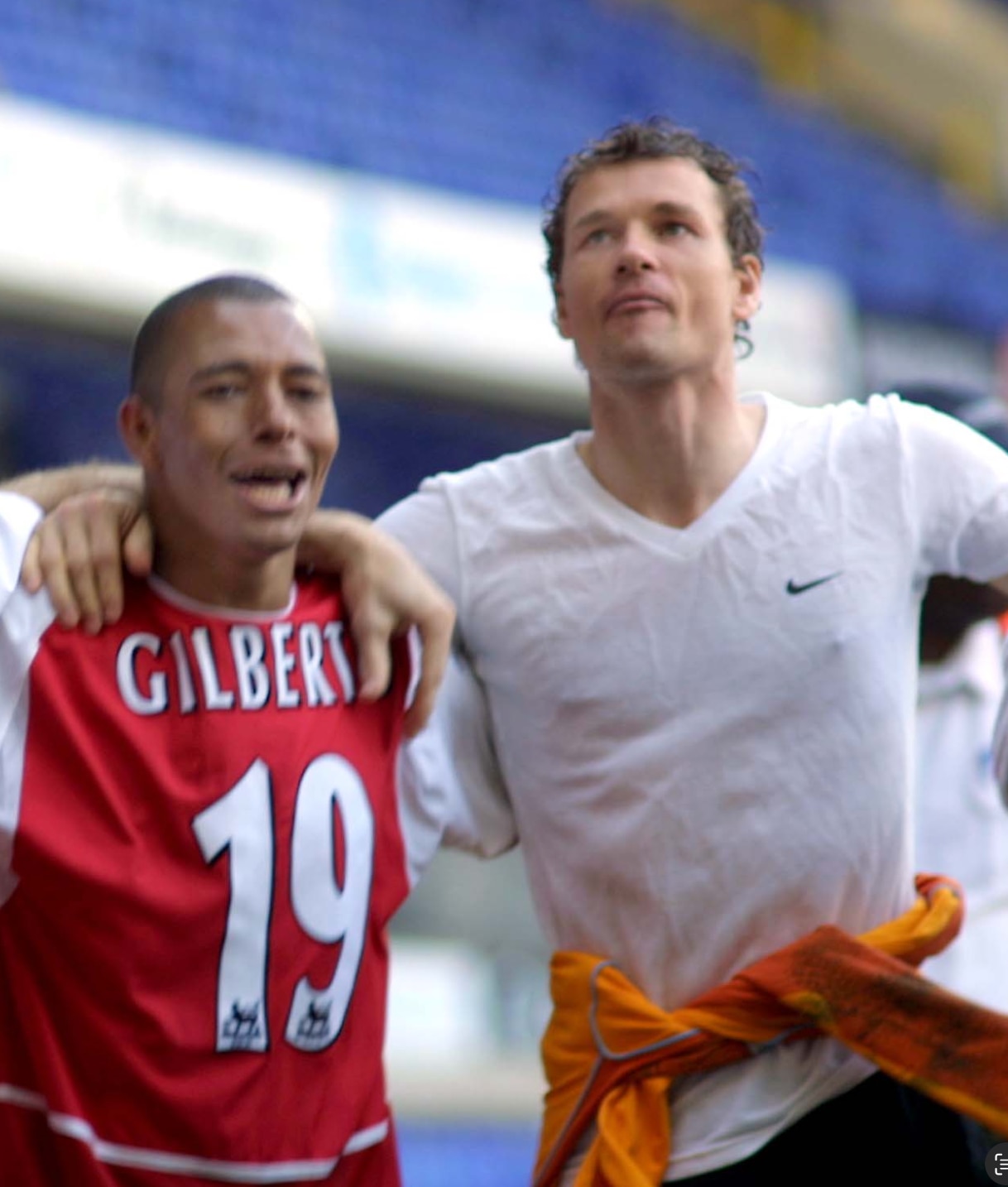
Did you know what result we needed to win the league when we went to White Hart Lane?
No, I didn’t know, and to be honest I didn’t even think about it because if you follow other results and other games, it takes the concentration off your own game. I didn’t even know at the end, because I was sitting in the dressing room, very disappointed, and the boss as well, then Sol Campbell came in. The three of us were upset we didn’t win the game, so I didn’t realise we were champions.
Sol didn’t really confront me afterwards, but I knew that he was angry with me for the last goal. It was better that he did not confront me, because afterwards he saw that it was probably not a penalty. That’s what the boss saw as well. He was very angry with me at the final whistle. He said: ‘Why did you give that penalty away? Why were you messing about with Keane?” I told him I didn’t do anything, and a couple of hours later when we were back at Colney, he saw it on the video and said “Sorry Jens, it wasn’t a penalty, the referee was wrong.” With VAR today, the penalty would have been disallowed.
When did you find out that draw was enough?
When Johnno came into the dressing room afterwards and said to me and Sol: "Why are you sitting around? We’re champions!” So then I went outside and we enjoyed it on the pitch, but I have to say I didn’t enjoy it too much at that time. I was still angry.
"I can’t say there was one game where I made a lot of saves or saved us – because we weren’t outplayed that season!"

After that it was a matter of staying unbeaten. Did the manager call a meeting to refocus everyone on that objective?
It was before I was there, but I know the manager had told his squad he thought they could go the season unbeaten. Then after we beat Tottenham, I think he gave a speech, I don’t know when it was exactly, but he told us he thought we could win each of our remaining games. I’m not sure when exactly though – it was 20 years ago! For me though, I wasn’t thinking about that. I just wanted to win every game anyway.
It all came down to the game against Leicester, what are your memories of that day?
Well I didn’t make many mistakes that I remember that season, but I did in that game. I could have done better for their first goal. I was lucky that we recovered from that and the team scored twice afterwards to get the win.
What were your personal highlights from the season?
I was very consistent that season. I had a couple of outstanding games – but that was after that season. That season I was consistent and made saves when I had to. I was reliable so overall I was pleased. But I can’t say there was one game where I made a lot of saves or saved us – because we weren’t outplayed that season!
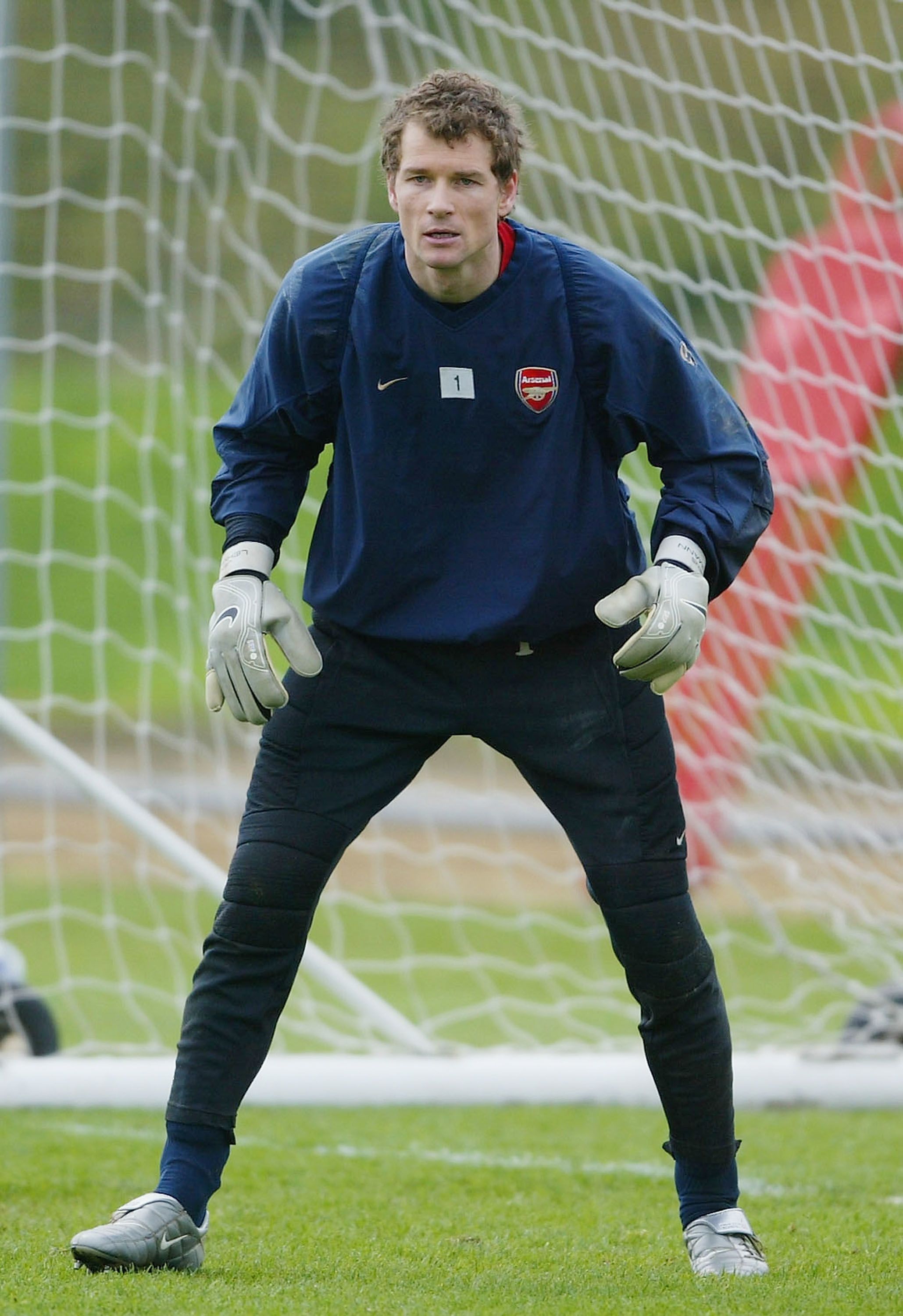
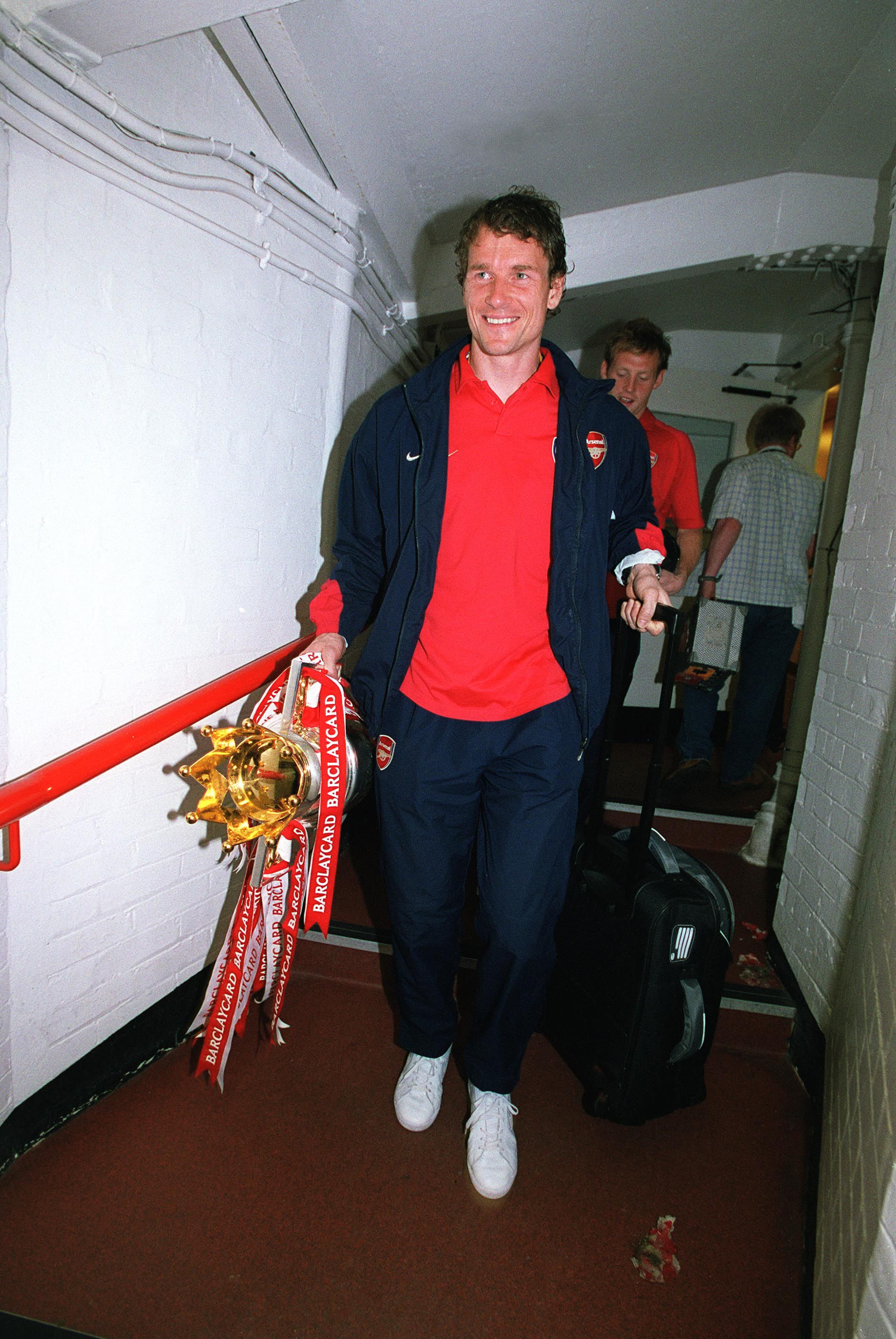
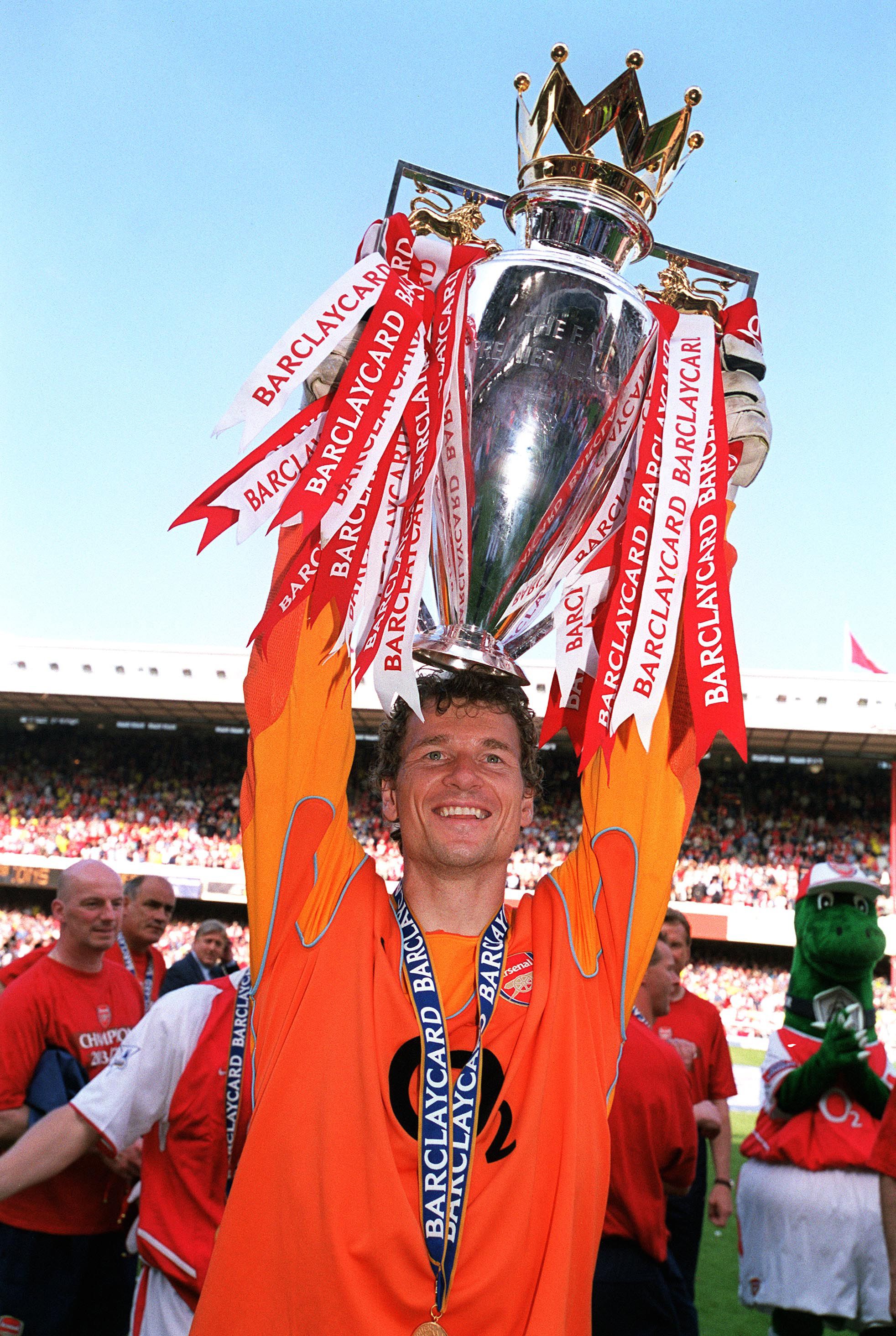
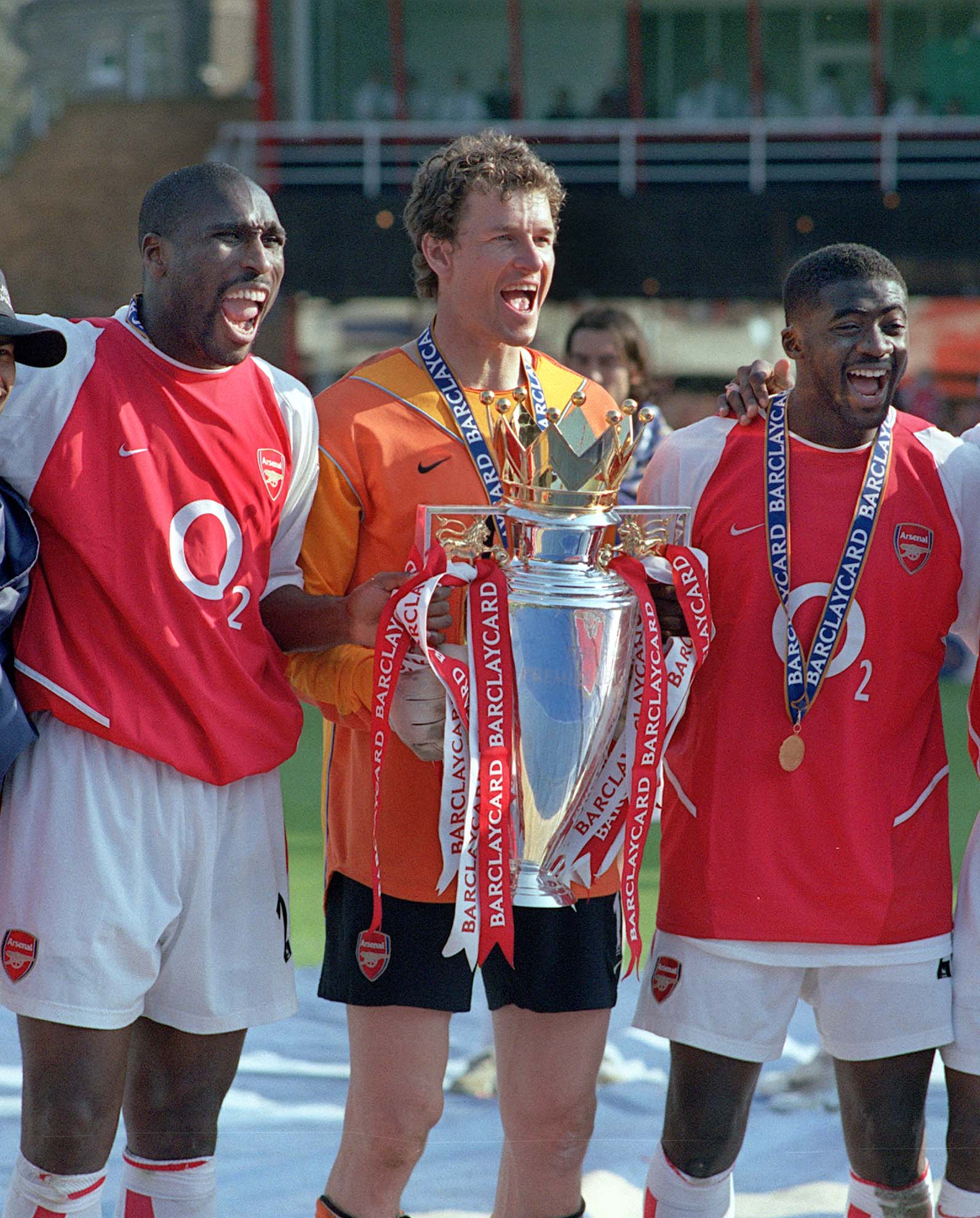
How would you describe the team spirit and competitiveness of that side?
I remember that every player that joined the club, sooner or later had to give a speech in front of the team. I gave mine after we beat Inter Milan 5-1 in November. I was saying what a pleasure it was to play in a team of such great quality, but also such a great team spirit. Because normally when you play in a team as good as that, the team spirit is not as strong.
Usually a smaller team, you make up for it with great team spirit, and I had that at Schalke, but at Arsenal we were a team with such skill and talent, but also team spirit, and that’s what I highlighted in my speech.
Who did you have a good relationship with off the pitch in that squad?
I would say I had a good relationship with everybody, on the pitch it was the complete opposite! But not all the time! But no, I went out with Freddie, with Ashley Cole, Patrick Vieira. Also my wife was quite friendly with Dennis Bergkamp’s wife, and Patrick’s wife.
For three years I sat next to Dennis on the coach every matchday. I cannot say he was my best friend, because he’s Dutch and I’m German, so we made fun of each other too, but I was close with him. At the training ground canteen there was an international table, with Kanu, Freddie, Dennis, Gilberto, Edu – so I got to know them well too.
Finally, how proud are you to have been part of that invincibles side?
At the time you don’t have time to be proud, because as soon as you feel that, you lose your focus. You can’t afford to be proud of something while you are still playing, you are trying to optimise your performances, but 20 years on, I can say I’m very happy to have been part of it.
We should all be proud of it, and we should also be proud that 20 years later we all have a good relationship, and we’ve set up a group so we are still close
















